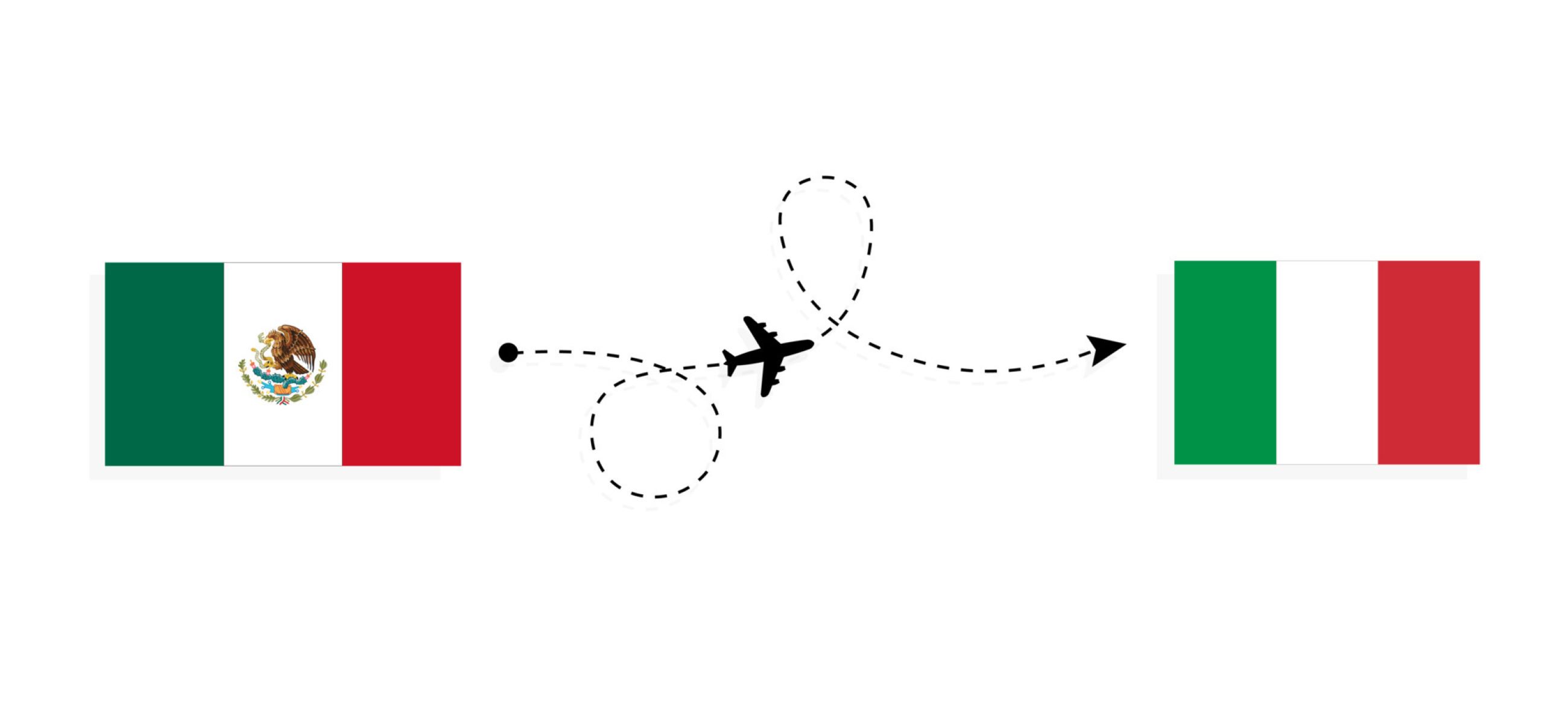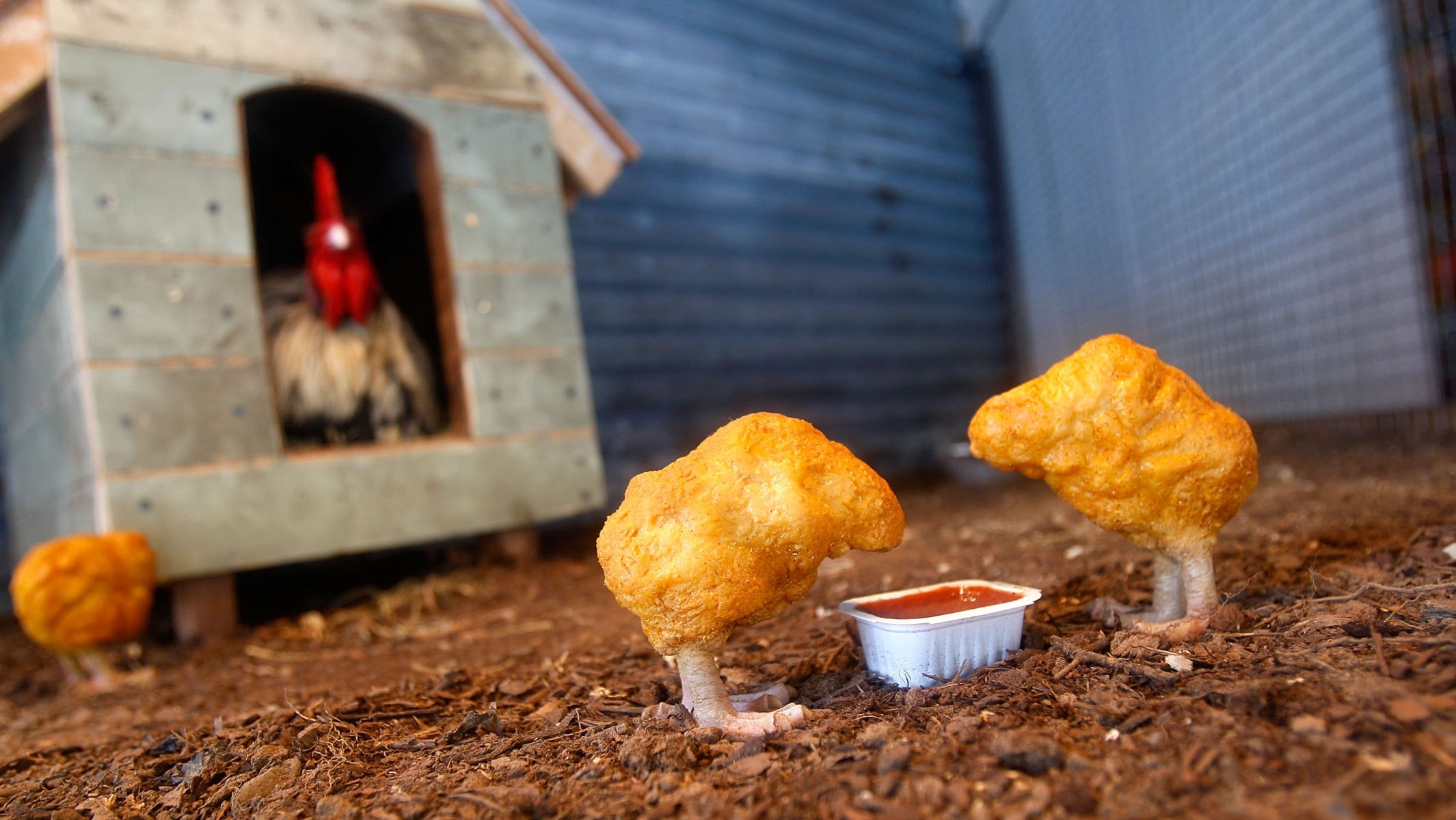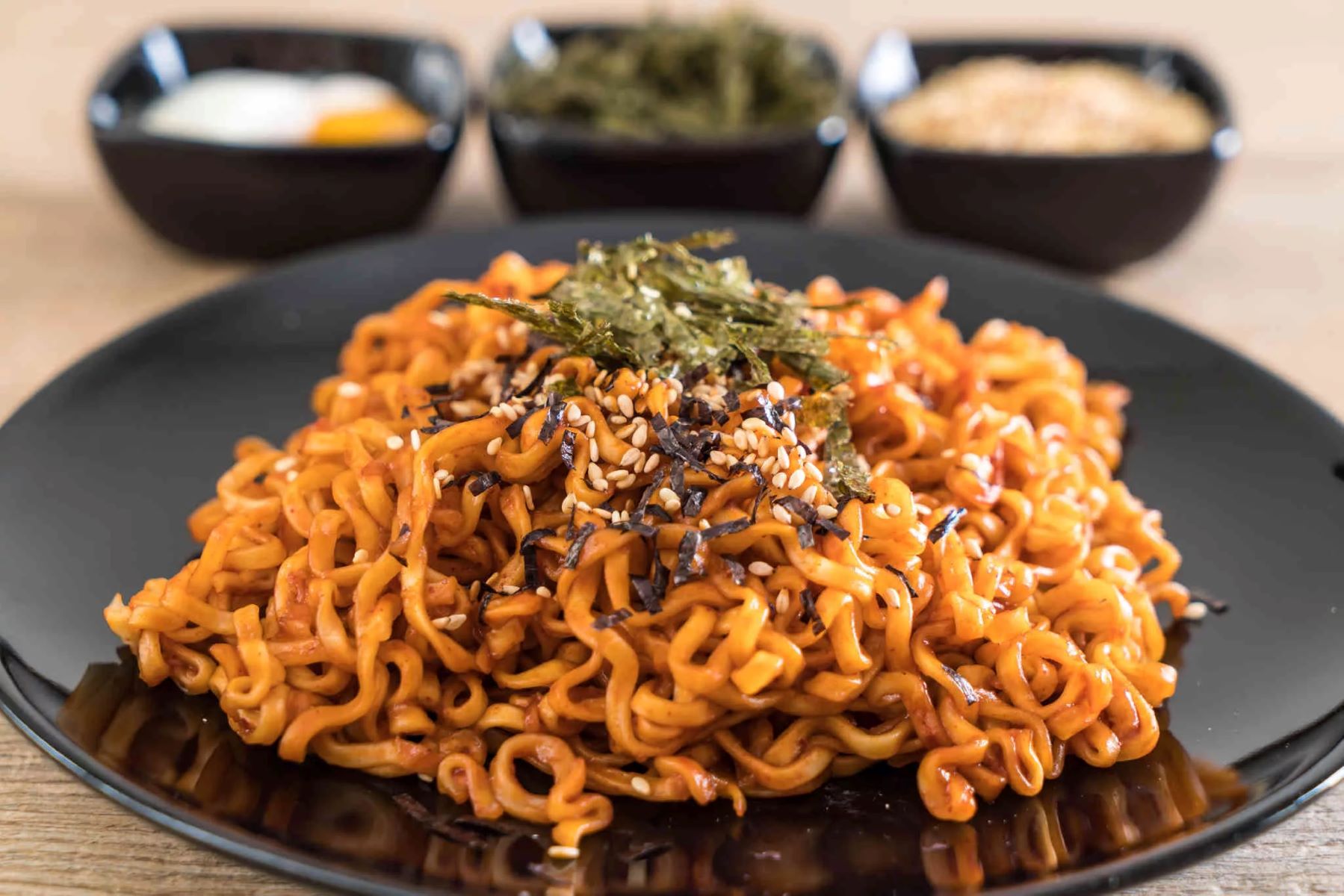Home>Food and Cooking>Shocking Revelation: Mozzarella Is Off-Limits For Vegetarians!


Food and Cooking
Shocking Revelation: Mozzarella Is Off-Limits For Vegetarians!
Published: February 4, 2024
Discover the shocking truth about mozzarella being off-limits for vegetarians! Explore more food and cooking insights.
(Many of the links in this article redirect to a specific reviewed product. Your purchase of these products through affiliate links helps to generate commission for Regretless.com, at no extra cost. Learn more)
Table of Contents
Introduction
Mozzarella, the beloved Italian cheese that graces countless pizzas, salads, and sandwiches, has long been a staple in the culinary world. Its creamy texture, mild flavor, and versatility have made it a favorite among food enthusiasts and chefs alike. However, a shocking revelation has emerged, causing a stir in the vegetarian community and prompting a closer examination of this popular cheese.
The controversy surrounding mozzarella stems from its traditional production process, which involves the use of an enzyme called rennet. This key ingredient, derived from the stomach lining of young calves, poses a dilemma for vegetarians who adhere to a strict plant-based diet. While many assume that mozzarella is a vegetarian-friendly option, the truth behind its production has raised important questions about its compatibility with vegetarian principles.
As we delve deeper into the origins and production of mozzarella, it becomes evident that this cheese holds a complex and intriguing history. From its humble beginnings in Italy to its widespread popularity across the globe, mozzarella has captured the hearts and palates of food enthusiasts for generations. However, the revelation of its non-vegetarian status has sparked a reevaluation of its place in vegetarian diets and culinary practices.
In the subsequent sections, we will explore the traditional production process of mozzarella, shedding light on the use of rennet and its implications for vegetarians. Additionally, we will uncover alternative options for vegetarians seeking to enjoy the delectable qualities of mozzarella without compromising their dietary beliefs. By gaining a deeper understanding of this controversy, we can navigate the culinary landscape with greater awareness and appreciation for the intricate choices that shape our food experiences.
The Origin of Mozzarella
Mozzarella, a quintessential Italian cheese, traces its origins to the region of Campania in southern Italy. The name "mozzarella" is derived from the Italian verb "mozzare," which means "to cut off." This name aptly reflects the traditional method of shaping the cheese by hand, where it is skillfully cut off and formed into individual portions.
Historical records indicate that mozzarella has been produced for centuries, with its roots deeply embedded in the rich agricultural heritage of Italy. The cheese was initially made from the milk of water buffaloes, which were introduced to Italy by the Normans in the 11th century. The use of buffalo milk in mozzarella production contributed to the cheese's distinctive flavor and creamy texture, setting it apart from other varieties.
The art of mozzarella-making was traditionally carried out by skilled artisans known as "casari," who meticulously crafted the cheese using age-old techniques passed down through generations. These artisans played a pivotal role in preserving the authenticity and quality of mozzarella, ensuring that each batch was a testament to Italian craftsmanship and culinary excellence.
Over time, mozzarella gained widespread popularity within Italy and eventually captivated the palates of food enthusiasts worldwide. Its inclusion in iconic Italian dishes such as pizza, caprese salad, and lasagna cemented its status as a culinary treasure, earning accolades for its ability to elevate the flavors of diverse recipes.
The global appeal of mozzarella prompted advancements in production methods, leading to the creation of mozzarella di bufala campana, a protected designation of origin (PDO) cheese made from buffalo milk in specific regions of Italy. This prestigious recognition underscored the cultural and historical significance of mozzarella, emphasizing its deep-seated connection to the land, traditions, and artisanal expertise of its origin.
As we reflect on the rich history of mozzarella, it becomes evident that this cheese embodies the essence of Italian culinary heritage, celebrating the time-honored traditions and regional craftsmanship that continue to define its allure. The journey of mozzarella from its humble beginnings to its global prominence serves as a testament to the enduring legacy of this beloved cheese, inviting us to savor its timeless appeal and appreciate the cultural tapestry from which it emerged.
The Traditional Production Process
The traditional production of mozzarella is a time-honored craft that embodies the artistry and dedication of skilled cheesemakers. The process begins with the milking of water buffaloes or, more commonly outside of Italy, cows. The freshly drawn milk is then heated and combined with rennet, a natural enzyme that initiates the coagulation of the milk, forming curds.
Once the curds have formed, they are cut into small pieces and heated in hot water to achieve the desired elasticity and texture. This crucial step, known as "pasta filata," involves stretching and kneading the curds to develop the characteristic smoothness and stretchiness of mozzarella. The skilled hands of cheesemakers play a vital role in shaping the curds into individual mozzarella balls or braids, a testament to the artisanal precision and expertise inherent in the process.
After shaping, the mozzarella undergoes a brief period of cooling in cold water, setting its structure and preserving its distinctive characteristics. The resulting cheese exhibits a delicate balance of creamy, milky flavors and a supple, slightly elastic texture, making it a versatile and sought-after ingredient in a myriad of culinary creations.
The traditional production process of mozzarella is steeped in heritage and craftsmanship, with each stage reflecting the meticulous attention to detail and time-honored techniques that have been passed down through generations. This artisanal approach ensures that each batch of mozzarella embodies the essence of Italian culinary tradition, inviting consumers to savor its exceptional quality and rich heritage.
As we delve into the intricacies of mozzarella production, we gain a deeper appreciation for the dedication and skill required to craft this beloved cheese. The traditional methods employed in its creation serve as a testament to the enduring legacy of artisanal cheesemaking, underscoring the cultural and culinary significance of mozzarella within the tapestry of Italian gastronomy.
The Use of Rennet in Mozzarella
The use of rennet in mozzarella production plays a pivotal role in shaping the cheese's distinctive characteristics and texture. Rennet, a complex of enzymes derived from the stomach lining of young calves, serves as a coagulant, initiating the crucial process of curd formation in cheese-making. This natural enzyme acts upon the milk proteins, specifically targeting casein, the primary protein responsible for the coagulation and solidification of the milk.
During the initial stages of mozzarella production, rennet is added to the heated milk, catalyzing the separation of curds from the liquid whey. This fundamental transformation gives rise to the curd mass, which is subsequently manipulated and shaped to yield the iconic smooth, elastic texture of mozzarella.
The use of rennet in mozzarella production has been deeply ingrained in traditional cheesemaking practices, contributing to the cheese's unique attributes and sensory appeal. The enzymatic action of rennet enables the formation of a cohesive curd structure, essential for achieving the desired texture and meltability characteristic of mozzarella.
While rennet has historically been sourced from the stomach lining of calves, modern advancements have led to the development of microbial and vegetable-based rennet alternatives. These alternatives provide viable options for cheesemakers seeking vegetarian-friendly coagulants, addressing the ethical considerations surrounding animal-derived rennet.
The presence of rennet in mozzarella production has raised important considerations for individuals adhering to vegetarian or plant-based diets. The traditional use of animal-derived rennet in mozzarella has prompted discussions within the vegetarian community, prompting a closer examination of the cheese's compatibility with vegetarian principles.
As the culinary landscape continues to evolve, the exploration of alternative coagulants and the increasing availability of vegetarian-friendly mozzarella options underscore the shifting paradigms within the cheese-making industry. These developments offer greater inclusivity for individuals with diverse dietary preferences, ensuring that the enjoyment of mozzarella can align with ethical and dietary considerations.
In essence, the use of rennet in mozzarella production represents a fundamental aspect of the cheese-making process, shaping the cheese's identity and sensory profile. The ongoing dialogue surrounding rennet usage reflects the dynamic interplay between tradition, innovation, and ethical considerations, highlighting the multifaceted nature of mozzarella and its enduring relevance within the culinary landscape.
The Vegetarian Dilemma
The production of mozzarella, a beloved Italian cheese, has sparked a significant dilemma within the vegetarian community, prompting a reevaluation of its compatibility with vegetarian dietary principles. At the crux of this dilemma lies the traditional use of rennet, an enzyme derived from the stomach lining of young calves, in the cheese-making process. This revelation has raised important ethical and dietary considerations for individuals who adhere to a plant-based lifestyle.
For many vegetarians, the use of animal-derived rennet presents a moral quandary, as it conflicts with their commitment to abstain from consuming products that involve the sacrifice or exploitation of animals. The inclusion of rennet in mozzarella production has led to widespread confusion and concern among vegetarian consumers, who may unknowingly encounter this non-vegetarian ingredient in a cheese that is often perceived as a vegetarian-friendly option.
The revelation of mozzarella's non-vegetarian status has ignited a discourse on the transparency and labeling of cheese products, urging manufacturers and producers to provide clear information regarding the use of rennet in their mozzarella. This transparency is crucial for empowering consumers to make informed choices aligned with their ethical beliefs and dietary preferences.
Furthermore, the vegetarian dilemma surrounding mozzarella extends beyond ethical considerations to encompass the broader concept of inclusivity within the culinary landscape. As the demand for vegetarian and plant-based options continues to rise, there is a growing impetus for the cheese-making industry to explore alternative coagulants that align with vegetarian principles. This pursuit of inclusivity reflects a commitment to accommodating diverse dietary preferences and fostering a more accessible and ethical food ecosystem.
In response to the vegetarian dilemma, some cheesemakers have embraced alternative coagulants, such as microbial or vegetable-based rennet, to produce vegetarian-friendly mozzarella. These efforts underscore a proactive approach to addressing the concerns of vegetarian consumers and expanding the availability of ethical cheese options that align with diverse dietary choices.
As the vegetarian dilemma surrounding mozzarella unfolds, it illuminates the evolving dynamics of the food industry, emphasizing the importance of ethical transparency, inclusivity, and consumer empowerment. The ongoing dialogue surrounding mozzarella and its compatibility with vegetarian principles underscores the profound impact of individual choices on the culinary landscape, inviting a deeper reflection on the interconnectedness of food, ethics, and cultural values.
In essence, the vegetarian dilemma surrounding mozzarella serves as a catalyst for meaningful discussions and positive shifts within the cheese-making industry, paving the way for greater awareness, inclusivity, and ethical considerations in the realm of cheese production and consumption.
Alternatives for Vegetarians
In response to the ethical and dietary considerations surrounding mozzarella production, the cheese-making industry has witnessed a notable shift towards offering alternative options for vegetarians seeking to enjoy the delectable qualities of mozzarella without compromising their dietary beliefs. This proactive approach has led to the development of vegetarian-friendly mozzarella, addressing the concerns of individuals adhering to plant-based lifestyles while expanding the accessibility of ethical cheese choices.
One prominent avenue for providing vegetarian-friendly mozzarella involves the utilization of microbial or vegetable-based rennet as a viable alternative to animal-derived rennet. These alternative coagulants, derived from microbial sources or plant enzymes, offer a cruelty-free and sustainable option for initiating the coagulation process in cheese-making. By embracing these alternative coagulants, cheesemakers can produce mozzarella that aligns with vegetarian principles, fostering greater inclusivity within the cheese industry.
Furthermore, the availability of vegetarian-friendly mozzarella extends beyond the realm of traditional cheese production, with innovative plant-based and dairy-free alternatives emerging as compelling options for consumers. Plant-based mozzarella substitutes, crafted from ingredients such as cashews, almonds, or soy, offer a flavorful and versatile alternative for individuals seeking a dairy-free and vegetarian-friendly option. These plant-based renditions capture the essence of mozzarella's creamy texture and mild flavor, providing a satisfying culinary experience that resonates with both vegetarians and cheese enthusiasts.
In addition to alternative coagulants and plant-based substitutes, the cheese-making industry has embraced technological advancements to develop cutting-edge methods for creating vegetarian-friendly mozzarella. From precision fermentation techniques to the exploration of novel plant proteins, these innovative approaches demonstrate a commitment to expanding the repertoire of ethical and sustainable cheese options, catering to the evolving preferences of conscientious consumers.
As the demand for vegetarian-friendly mozzarella continues to gain momentum, it is evident that the cheese-making industry's embrace of alternative coagulants, plant-based substitutes, and innovative production methods represents a pivotal step towards fostering inclusivity and ethical transparency. By offering diverse and accessible choices, the industry not only honors the values and dietary preferences of vegetarians but also contributes to a more inclusive and conscientious culinary landscape.
In essence, the emergence of alternative options for vegetarians seeking mozzarella reflects a profound commitment to ethical and sustainable practices, signaling a transformative shift towards greater inclusivity and choice within the cheese-making industry. This evolution underscores the industry's responsiveness to consumer needs and values, heralding a future where vegetarian-friendly mozzarella stands as a testament to the harmonious convergence of culinary excellence and ethical considerations.
Conclusion
The journey through the intricate world of mozzarella has illuminated the profound interplay of tradition, ethics, and innovation within the cheese-making industry. The revelation of mozzarella's non-vegetarian status has sparked a pivotal dialogue, prompting a reevaluation of its compatibility with vegetarian principles and ethical considerations. As we navigate this culinary landscape, it becomes evident that the story of mozzarella transcends its creamy texture and iconic presence in Italian cuisine, encompassing a tapestry of cultural heritage, ethical dilemmas, and progressive solutions.
The traditional production process of mozzarella, rooted in centuries-old craftsmanship and artisanal expertise, reflects the enduring legacy of Italian culinary traditions. The meticulous techniques employed in shaping and crafting mozzarella underscore the dedication and skill of cheesemakers, preserving the essence of a time-honored craft that continues to captivate the palates of food enthusiasts worldwide.
The use of rennet in mozzarella production, while integral to shaping the cheese's sensory profile, has emerged as a focal point for ethical contemplation. The inclusion of animal-derived rennet has prompted a reexamination of transparency, labeling practices, and the pursuit of alternative coagulants that align with vegetarian principles. This ethical discourse underscores the evolving dynamics of the cheese-making industry, emphasizing the imperative of inclusivity and ethical transparency in meeting the diverse dietary preferences of consumers.
In response to the vegetarian dilemma, the cheese-making industry has embraced a proactive and innovative approach, offering alternative options for vegetarians seeking to savor the delectable qualities of mozzarella. The development of vegetarian-friendly mozzarella, featuring microbial or vegetable-based rennet and plant-based substitutes, represents a transformative shift towards fostering inclusivity and ethical transparency. These advancements not only honor the values and dietary preferences of vegetarians but also contribute to a more accessible and conscientious culinary landscape.
As we conclude this exploration, it is evident that the revelation of mozzarella's non-vegetarian status has catalyzed a profound evolution within the cheese-making industry. The ongoing dialogue surrounding mozzarella serves as a testament to the dynamic interplay of tradition, ethics, and innovation, shaping a future where ethical considerations and culinary excellence converge harmoniously. The emergence of alternative options for vegetarians seeking mozzarella stands as a beacon of progress, heralding a future where inclusivity, transparency, and ethical mindfulness guide the continued evolution of the cheese-making industry.
In essence, the story of mozzarella, with its ethical complexities and progressive solutions, invites us to embrace a culinary landscape that honors tradition, celebrates innovation, and resonates with the diverse values and preferences of consumers. As we savor the timeless allure of mozzarella, we embark on a journey that transcends the boundaries of taste, intertwining the threads of culture, ethics, and culinary ingenuity to shape a future where every palate finds its place at the table.














